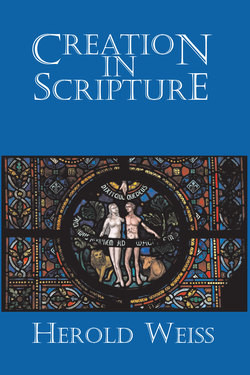Читать книгу Creation in Scripture - Herold Weiss - Страница 5
На сайте Литреса книга снята с продажи.
PREFACE
ОглавлениеAll Christians agree that the human world is God’s by creation and redemption. For centuries Christians debated among themselves how exactly redemption has been, is or will be accomplished. The “how” of redemption is now no longer debated with much passion. These days at the forefront of Christian debates is the “how” of creation, which for centuries had been commonly understood and neglected as a given.
The current debate about creation, which has aroused passionate denunciations and strong animosities, has been caused by the perception that the scientific theory of evolution presents a direct challenge to traditional biblical Christianity. The basis and the contours of this debate have been analyzed already many times and people have taken positions on them. It may legitimately be questioned whether science and faith operate in the same arena, and therefore can challenge and criticize each other. People also debate the significance of specific scientific pieces of evidence, or the over all import of the theory of evolution. Among believers there has been a long standing conversation about the literal and the symbolic value of specific biblical statements. Since I am not a scientist, nor a systematic theologian, I do not intend to enter into these debates.
It seems to me that any one wishing to teach a biblical view of the “how” of creation must take into account the whole Bible, and not arbitrarily limit the evidence to Genesis 1–3, much less to Gen. 1:1–2:4. To limit the biblical evidence to “creation week” is a myopic reduction of the evidence that cannot legitimately be sustained by any one who affirms the Scriptures are the Christian’s rule of faith and practice. Unexplainably, however, this has been the case in the debates about creation and evolution.
There are those who seem to think that if they find a text of scripture that supports what they wish to believe or do that is all it takes to prove adherence to the Bible. Even if in some quarters until today the “proof-text” method of biblical study is common usage, its inadequacy has been recognized since the end of the eighteenth century. It is, therefore, high time for Christians who claim to be scripturally based to adopt positions on doctrine or morals only after having taken a serious look at all the biblical evidence on the matter. To propound a doctrine based on one text of Scripture, many times taken out of context, is not a responsible way to represent what the Bible teaches. This book is an attempt to give a representative overlook of the biblical evidence about creation so that readers may adopt well-conceived conclusions that are truly biblically based.
An earlier version of the chapters of this book first appeared as monthly columns in www.spectrummagazine.org between July 2010 and May 2011. Those columns have been re-written for this book taking into account the expanded horizon gained once they had all appeared and the different audience this book wishes to address. The re-writing of the columns has benefitted from comments posted by various readers in the web and more specifically by friends and family who read and criticized the early drafts of the revised chapters. I owe much to Jean and Don Rhoads. They saved me from both syntactical and idiomatic malpractice, and from less than clear sentences. Edward W. H. Vick, the author of a companion volume, read my text and checked that we were complementing each other. Terence Martin made many helpful suggestions concerning the implications of what I had written. My sons, Herold and Carlos, and my wife, Aida, also read the drafts, offered helpful suggestions for their improvement and gave me unconditional support. My editor and publisher, Henry Neufeld, merits my special gratitude for having offered me a contract for the publication of a book I had not yet quite written. That was a first for me. He also decided to make this a companion volume to the book by Edward W. H. Vick which takes a look at the Christian doctrine of creation from a systematic perspective. I am most indebted to him for the professionalism and dedication with which he has carried this project to a most satisfying completion.
